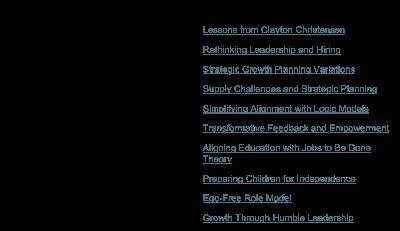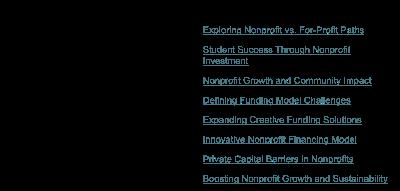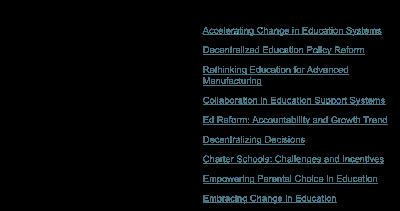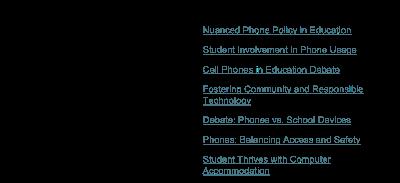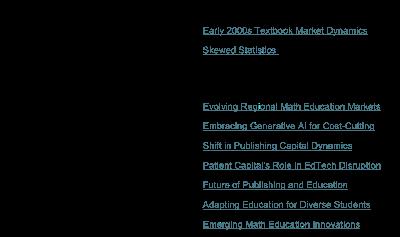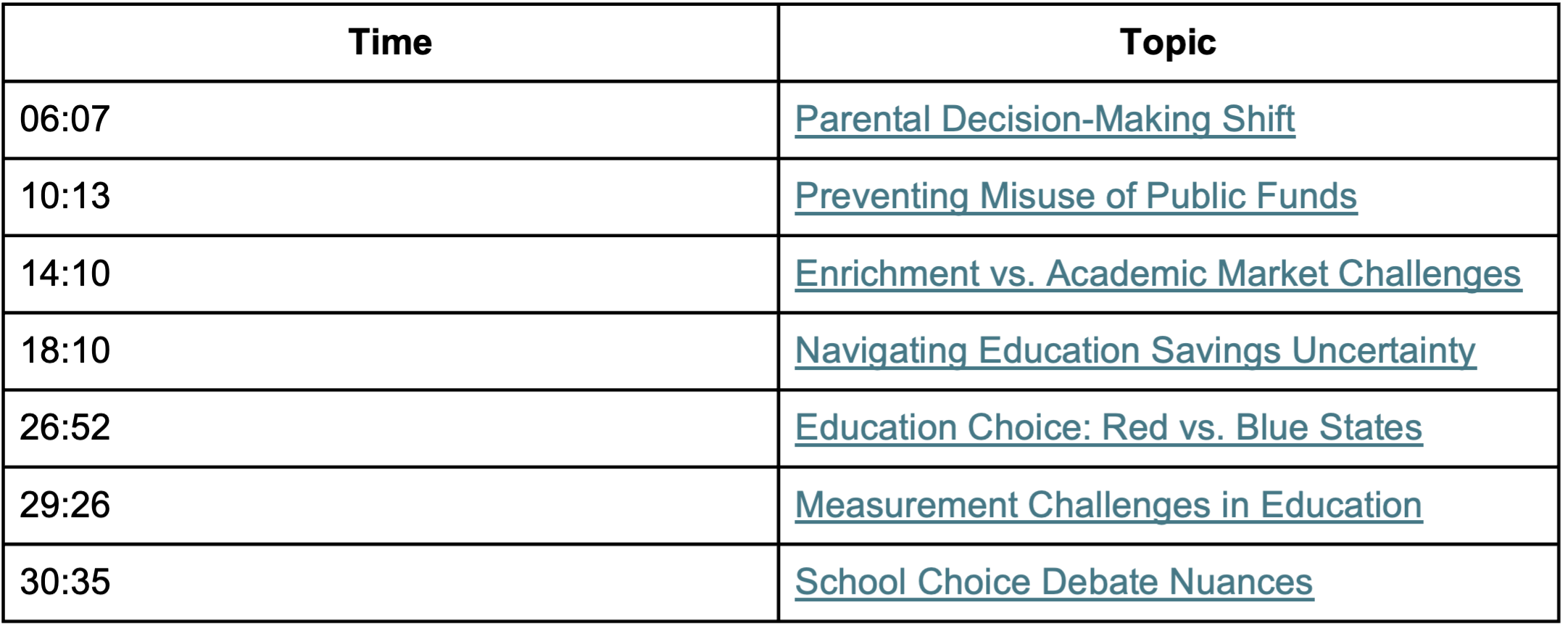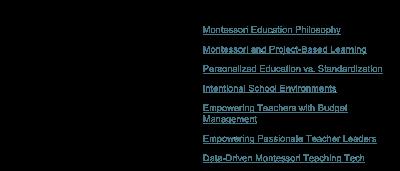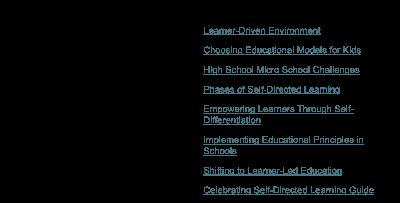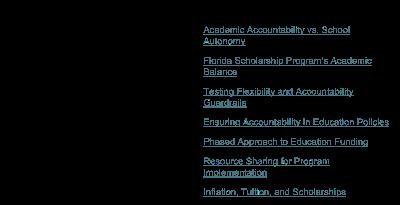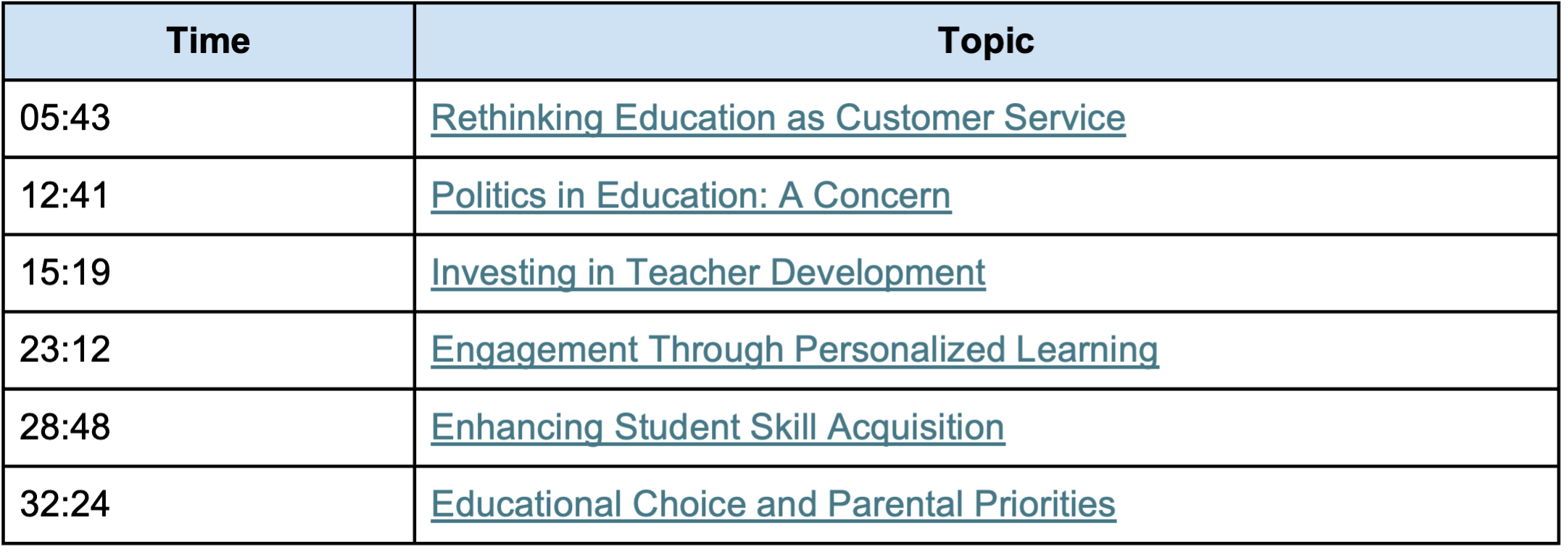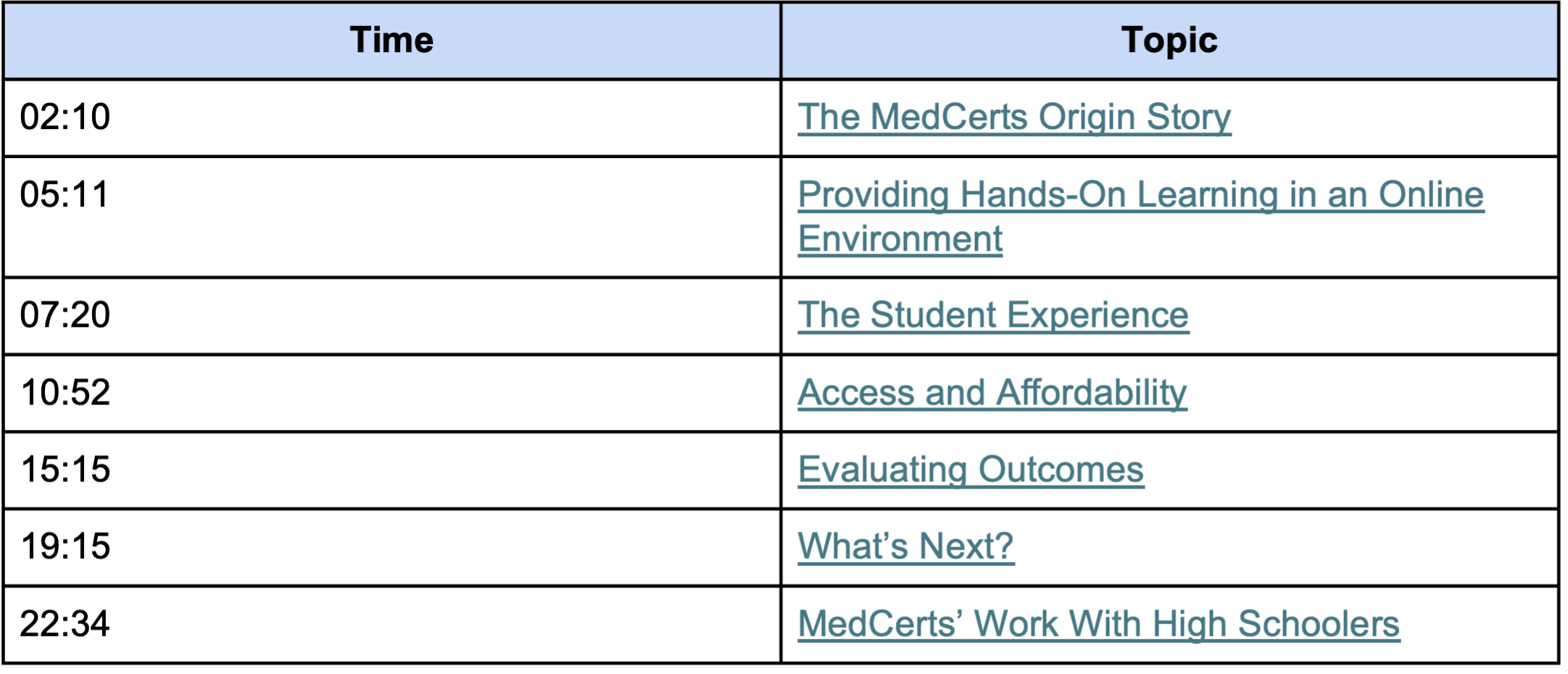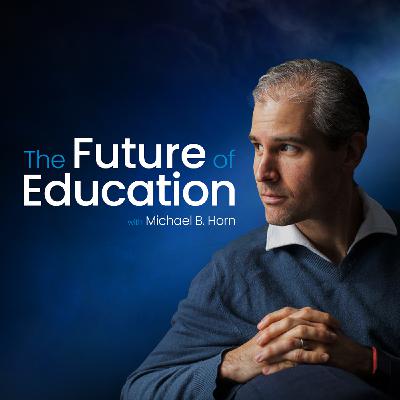Clay Christensen's Practical Lessons for an Education Leader
Description
Tyler Thigpen, CEO and head of school at the Forest School and Acton Academy, joined me again to discuss the powerful impact that my mentor, Clay Christensen, and his theories of innovation had on Tyler’s practical approach to education leadership and innovation. We dove into topics such as identifying and developing capable leaders, designing for sustainability, integrating around a Job to Be Done, and shaping organizational culture through problem-solving.
Michael Horn
Welcome to the Future of Education. I'm Michael Horn. You're joining the show where we're dedicated to creating a world in which all individuals can build their passions, fulfill their potential, and live lives of purpose. Today we've got a repeat guest, that happens every once in a while, but generally not like this close in proximity to each other. But we've got Tyler Thigpen back. He's the CEO, head of School of the Forest School and Acton Academy. He teaches at the University of Pennsylvania's Graduate School of Education.
We talked a lot last time about how he's the CEO of the Institute for Self Directed Learning in his book about that topic, the Playbook for Self Directed Learning. Tyler, did I miss anything? Good to see you. How are you?
Tyler Thigpen
You didn't miss anything. Great to see you. I'm doing really well and happy to be chatting about this topic today.
Lessons from Clayton Christensen
Michael Horn
Yeah. And so I wanted to bring Tyler back because I thought the conversation we had was fantastic. And literally, like a few weeks after we had recorded that, he came out with this piece on LinkedIn titled 8 Game Changing Business Lessons I Learned from Clayton Christensen. And of course, as you all know, Clayton Christensen was my mentor. The ideas he learned literally changed my life and how I view the world. And Tyler, I guess I, like, I hadn't internalized that you had had some similar experiences taking Clay's class when you were in the EDLD program, I think at the Ed School at Harvard. And so I just thought, well, for starters, like, what. What moved you to write the piece? And maybe macro level, talk about the impact that that Clay had with you or when you got to interact with him and sort of that moment in your life
Tyler Thigpen
Totally. And my experience with Clayton, you said, changed my life. And even though I didn't get as much time with him as I think you probably did, I would say the same thing. Just an incredible experience. The first time I led a school, Michael, was back in 2011, and I had read the Innovator's DNA and was very compelled by that. And then my team and I started an innovation diploma for high schoolers. Really centered around some of the characteristics, you know, the questioning, the networking, the experimentation, you know, highlighted there in Innovator's DNA. But I didn't know Clayton. It wasn't until I went to my doctoral program that I heard about this legendary course called Building and Sustaining a Successful Enterprise, which I know you know very well.
And I got lucky enough to get him in class and really just rolled up my sleeves and tried to take from it as much as possible. And it really that was 10 years ago, and it's been, you know, my work as a CEO since that time. How many times I have, you know, thought back and reflected and looked at notes and reread theories and tried to apply things. It's just remarkable. It's really almost more than any other business framework that I've come up with. And so that's really what inspired me to write the piece.
I was at a dinner with one of your colleagues, Thomas Arnett, and was sharing some of the same story with him, and I realized I haven't really synthesized my own reflections and thinking. And so I'll put it in a LinkedIn article. And I did, and it was so helpful. And I actually teach it to my leaders as well on my team, and we continue to benefit.
Michael Horn
Very cool. Very cool. And I think you got a lot of feedback on that article. So maybe we'll start not David Letterman style completely, but at the bottom, number eight, and then we'll work backwards number eight. You had identifying and developing capable leaders. And I'd love to know what that means to you, because, like, I think a lot of people would say, well, like, everyone's looking for leaders. You talk to a venture capitalist, they invest in, you know, entrepreneurs. Right? Like, what does that mean? And how did Clay help you around that? Or what's the problem that it helped you solve for?
Tyler Thigpen
Absolutely, Michael. And again, I welcome your feedback on any of this because, yeah
Michael Horn
But I'm super curious what this one meant.
Rethinking Leadership and Hiring
Tyler Thigpen
Yeah, I mean, this was one of the most provoking ideas that I encountered with Chloe. I actually disagreed with him at first. I was given leadership opportunities at a very young age, professionally, like 21. I had a boss that just really believed in me. And so I had this bias around leadership that's like, as long as you have a few certain qualities, you can do anything, you know? But Clayton's very provoking point was to think through, okay, for the roles that you have for your organization, for it to really, you know, grow and execute and learn at a high level. What are the kinds of experiences that this individual is going to have to face? What are the kinds of experiences, therefore, that we would then look for in their previous life, you know, leading up to that point, whether in their personal or professional life, that would have given them the sorts of experiences to be able to navigate them once they approach this new task. And so it really impacted my hiring, honestly, Michael, I just started to really think meaningfully about the competencies required for Each one of our different roles at the school and then backwards design from that and then in our interview questions and interview performance tasks, start looking for team members who had done those kinds of or similar experiences, you know, in the past.
And, and really, honestly nobody, because we're our school and our organization is, you know, trying to build something that's new and innovative. So it's not like anybody's really gone to a school for exactly the roles that we have. So if anything, you know, doing this process with folks as they, as they apply for us is. It helps see where they are going to be ready to hit the ground running and then where they may need some support, you know, early on. So that's been key for us for hiring for the last number of years.
Michael Horn
And for those who are interested, I think he calls it the Right Stuff Theory. Right. The schools of experience, if I'm remembering, and it's from Morgan McCall's work, High Flyers Developing the Next Generation of Leaders. And I think we may have had a similar, like, sort of disagreement with it initially. Actually, it'll be interesting to compare notes on this. My recollection was like, when Clay introduced this theory to our class, my pushback was like, well, if you're always looking for someone who's had experience, like, you never actually bring someone up into the next rung because, like, you're looking for, like, it's a truism in some ways. How do you develop? And I guess the nuanced understanding I developed over time of it was like, actually it's the opposite, right? Like the argument is, you know, you're looking for a CEO of a startup venture or something like that.
You don't go to the CEO of a Fortune 500 company to fill that because their experiences are actually in large environments of how to get stuff done and things like that. And you'd be better off finding someone who maybe hasn't had the C level job, but had the experience of navigating and operating in a similar small environment and getting, you know, learning how to pull resources and get experiences done. And now you're giving them sort of that next ladder, if you will, on, their progression. And, and so in some ways I, I started to think of it as like, actually it's more pro development than I thought. It's just you have to sort of understand experience and like, context in a deeper way than maybe I had. How does that resonate with you?
Tyler Thigpen
It totally resonates. And I, I think too, he helped me see that if you, I mean, yeah, there's a good chance that if you've got someone who succeeded in an environment, they're going to succeed in another environment. But that's just what it is. It's a chance, you know, it's a bit riskier. Whereas if you need someone to deliver on the promise of this new role in this context, then there's going to be a greater likelihood for success if you look for that level of alignment. So you use the word nuance that. I totally agree. It's a bit more nuanced approach.
Michael Horn
Yeah. Okay, so let's go to the seventh one then. You had, you had understanding business models and designing for sustainability, which is interesting because like his class, as you said, legendary class. Building and sustaining successful enterprise. World's worst name for a course ever. But Clay was like consumed with sustainable success, right? Not flash in the pan. Success was like super core to who he was. So, so how did, how did this, how does this manifest and what you do day to day?
Strategic Growth Planning Variations
Tyler Thigpen
Well, and this one, I don't know if in your mind this one is closely connected to the discovery driven planning. For me it sort of is. But basically the way this impacted me was when I was outside of this context, it was like, okay

